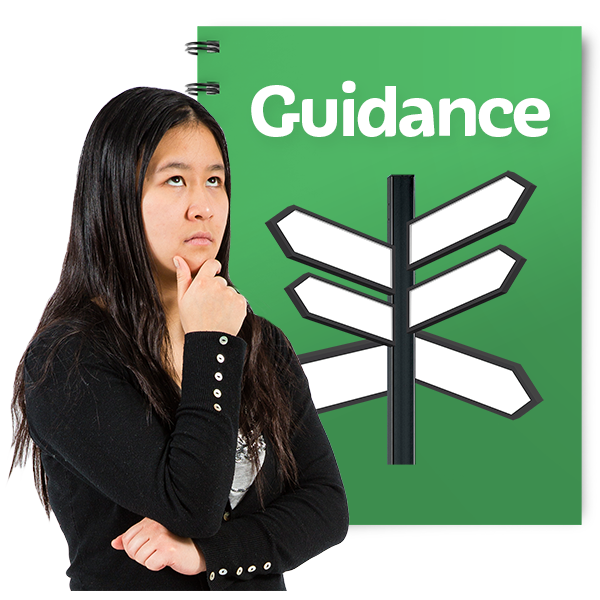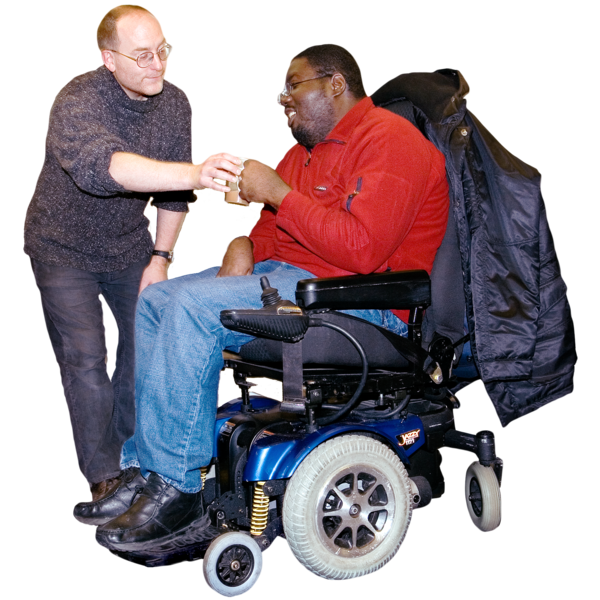On Tuesday 25th June, the CQC published a report on how changes to the Mental Health Act code of practice have failed to strengthen safeguards needed to protect vulnerable people with a
learning disability
 A learning disability is to do with the way someone's brain works. It makes it harder for someone to learn, understand or do things.
.
A learning disability is to do with the way someone's brain works. It makes it harder for someone to learn, understand or do things.
.
The report revealed how the Mental Health Act code of practice is not being used as it was intended due to a lack of awareness and understanding of the statutory
guidance
 Guidance means being given clear instructions to be able to do something well.
amongst providers and staff.
Guidance means being given clear instructions to be able to do something well.
amongst providers and staff.
Dan Scorer, Head of Policy and Public Affairs at the learning disability charity Mencap, said:
“Today’s CQC’s report reveals that changes made to the Mental Health Act code of practice have failed to strengthen the safeguards needed to protect some of the most vulnerable people in our society. A learning disability is not a mental health condition. Yet children and adults who have a learning disability are being inappropriately sectioned under the Mental Health Act and locked away in inpatient units where they are at increased risk of abuse and neglect – even when they do not have a treatable mental health condition.
“Children and adults with a learning disability deserve to live in homes not hospitals. That’s why we need
the government
 The Government are the people who run the country. The Government decide how much tax people should pay and how things like the National Health Service (NHS) should work.
and NHS to get on with closing down these inpatient units and investing in good quality
social care
The Government are the people who run the country. The Government decide how much tax people should pay and how things like the National Health Service (NHS) should work.
and NHS to get on with closing down these inpatient units and investing in good quality
social care
 Social care means the services that give care and support to people who need it.
in the
community
Social care means the services that give care and support to people who need it.
in the
community
 A community is the people and places in an area.
that we know people with a learning disability need and deserve. As we await the government’s response to the review into the Mental Health Act, we again call on them to set up an independent review specifically into the treatment of people with a learning disability and/or
autism
A community is the people and places in an area.
that we know people with a learning disability need and deserve. As we await the government’s response to the review into the Mental Health Act, we again call on them to set up an independent review specifically into the treatment of people with a learning disability and/or
autism
 Autism is a disability. Autistic people find it difficult to understand what other people think and feel. They also find it difficult to tell people what they think and feel. Everyone with autism is different.
under the Act, which neither the review or today’s report have adequately addressed.”
Autism is a disability. Autistic people find it difficult to understand what other people think and feel. They also find it difficult to tell people what they think and feel. Everyone with autism is different.
under the Act, which neither the review or today’s report have adequately addressed.”
Read the full CQC report online here.
-ENDS-
For further information or to arrange interviews, contact Mencap’s media team:
- email media@mencap.org.uk
- phone 020 7696 5414 (including out of hours).
Notes to editors
About Mencap
There are 1.4 million people with a learning disability in the UK. Mencap works to support people with a learning disability, their families and carers by fighting to change laws, improve services and access to
education
 Education is when you learn things. When you fill in a form to get a job, education means you write where you went to school, college or university.
,
employment
Education is when you learn things. When you fill in a form to get a job, education means you write where you went to school, college or university.
,
employment
 Employment means having a job.
and
leisure
Employment means having a job.
and
leisure
 Leisure is when you have time to do things you enjoy like playing sports or going to the pub.
facilities. Mencap supports thousands of people with a learning disability to live their lives the way they want.
Leisure is when you have time to do things you enjoy like playing sports or going to the pub.
facilities. Mencap supports thousands of people with a learning disability to live their lives the way they want.
For advice and information about learning disability and Mencap services in your area, contact Mencap’s freephone Learning Disability Helpline on 0808 808 1111 (9am-3pm, Monday-Friday) or email helpline@mencap.org.uk.
What is a learning disability?
A learning disability is a reduced intellectual ability which can cause problems with everyday tasks – for example shopping and cooking, or travelling to new places – which affects someone for their whole life;
Learning disability is not a mental illness or a learning difficulty, such as
dyslexia
 Dyslexia is a learning difficulty. People who have dyslexia can find it hard to read, write and spell.
. Very often the term ‘learning difficulty’ is wrongly used interchangeably with ‘learning disability’.
Dyslexia is a learning difficulty. People who have dyslexia can find it hard to read, write and spell.
. Very often the term ‘learning difficulty’ is wrongly used interchangeably with ‘learning disability’.
People with a learning disability can take longer to learn new things and may need support to develop new skills, understand difficult information and engage with other people. The level of support someone needs is different with every individual. For example, someone with a severe learning disability might need much more support with daily tasks than someone with a mild learning disability.